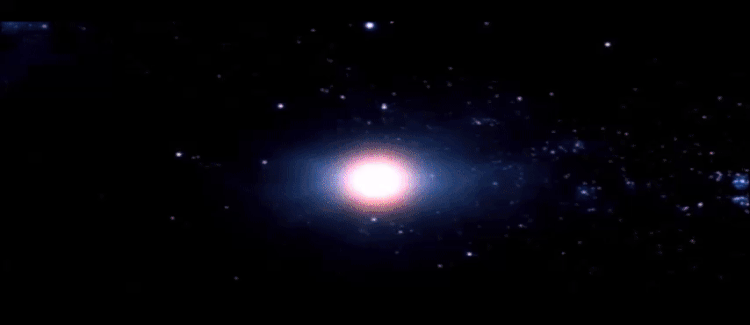Our solar system was nothing but a mist of dust and gases, what is known as a solar nebula.

Source
We don't know exactly what caused it, but some scientists believe that the shockwave of a nearby supernova hit our nebula,

Source
Now, as things collected together, their overall gravity got stronger and they pulled more stuff in it. And boom, we've got a Sun.

Source
One of these planets I've actually visited and it's called Earth.
But before we get ahead of ourselves, what the heck is the Moon doing there? I mean, here's the problem.
When you look at all the terrestrial planets, all the planets near us, near the Sun, they all have very similar structure and they'll have the same big metal core and they all have very similar densities.

Source
And it doesn't have a similar structure, it doesn't have a huge dense metal core.

Source
In fact when we visited them and brought back dust and rocks to analyze what the Moon was made out of, we found that the Moon was made out of the same stuff that you find in Earth's crust and mantle but not Earth's core.
This discovery gave rise to a pretty awesome idea that the moon is actually made out of what used to be on Earth.

Source
It was fine for millions of years but eventually and what did happen to it was that it collided with Earth. Now, it's believed that the collision happened quite slowly and the centers, the cores of both Theia and Earth fused into one. And material from the mantle and crust of Earth wasn't just scattered but it was forcefully ejected, literally launched into outer space.

Source

Source

Source

Source
Now, they move and they've been in constant motion since they began but they move very, very slowly. Every 300 to 500 million years, the continents all converge into what's called one big supercontinent.

Source

Source
What's really mind-blowing is the fact that eventually there's going to be another Pangaea, another supercontinent. And based on calculations, the Earth at that time will look like this.

Source
Let's begin. The British Isles and Ireland are a collection of 6 thousand islands off the coast of Europe.
Source
Source
Source
Source
Thanks for reading.